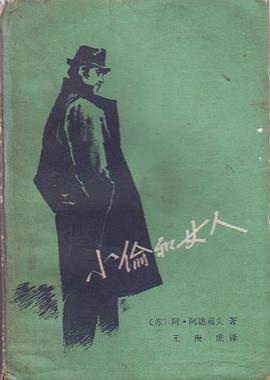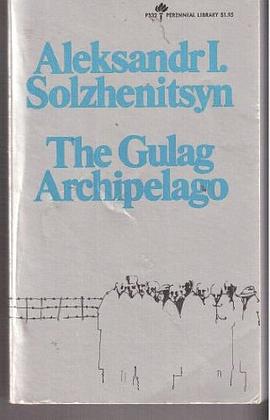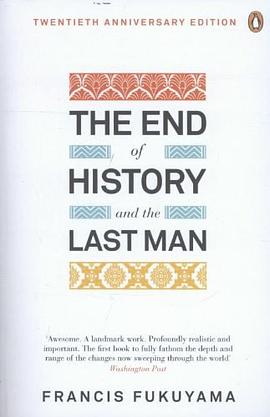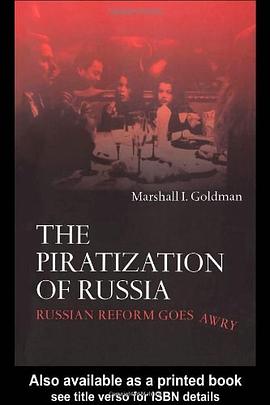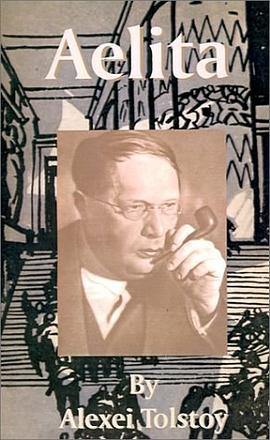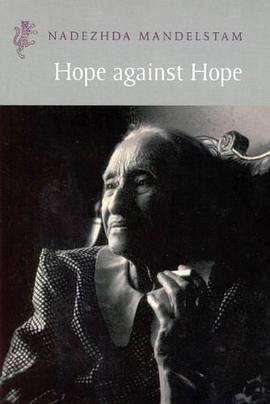

具体描述
The story of the poet Osip Mandelstam, who suffered continuous persecution under Stalin, but whose wife constantly supported both him and his writings until he died in 1938. Since 1917 The Modern Library prides itself as The modern Library of the world s Best Books . Featuring introductions by leading writers, stunning translations, scholarly endnotes and reading group guides. Production values emphasize superior quality and readability. Competitive prices, coupled with exciting cover design make these an ideal gift to be cherished by the avid reader. Of the eighty-one years of her life, Nadezhda Mandelstam spent nineteen as the wife of Russia's greatest poet in this century, Osip Mandelstam, and forty-two as his widow. The rest was childhood and youth." So writes Joseph Brodsky in his appreciation of Nadezhda Mandelstam that is reprinted here as an Introduction. Hope Against Hope was first published in English in 1970. It is Nadezhda Mandelstam's memoir of her life with Osip, who was first arrested in 1934 and died in Stalin's Great Purge of 1937-38. Hope Against Hope is a vital eyewitness account of Stalin's Soviet Union and one of the greatest testaments to the value of literature and imaginative freedom ever written. But it is also a profound inspiration--a love story that relates the daily struggle to keep both love and art alive in the most desperate circumstances.
作者简介
Nadezhda Yakovlevna Mandelstam was born in Saratov in 1899, but spent her early life in Kiev, studying art and travelling widely in Western Europe. She learned English, French and German fluently enough to undertake extensive translation work, which supported her in the hard years ahead. She met the poet Osip Mandelstam in Kiev in 1919, and they married in 1922. From then until Osip's death, her life was so inextricably linked with her husband's that without her extraordinary courage and fortitude most of his work would have died with him. She spent the Second World War in Tashkent, teaching English and sharing a house with her close friend the poet Anna Akhmatova. After the war she led an inconspicuous existence as a teacher of English in remote provincial towns. In 1964 she was granted permission to return to Moscow, where she began to write her memoir of the life she had shared with one of the greatest Russian poets of the twentieth century, and where she continued to preserve his works and his memory in the face of official disapproval. Nadezhda means 'hope' in Russian, and she herself chose the English titles for her two-volume memoirs. She died in 1980.
目录信息
读后感
书中摘记,记录下诗句的创造过程,积郁,痛苦与伟大的诞生, 引文如下: 我认为,对于诗人而言,幻听症是某种职业病。诗句是这样产生的它起初是诗人身中一个挥之不去的无形乐句,然后形式才逐渐确定下来,但仍无字词。 他摇晃着脑袋,似乎想把那曲调甩出来,就像甩出游泳时灌进...
评分 评分西伯利亚情歌 那些云沉得那么低,像要睡在海的眼皮上 像是太平洋的一串迷梦,她梦见了黑海。 荒芜的岛屿像是沃罗涅日, 阳光摸索着我左肩的骨头像我弃妻的手。 他们突然交出了所有的珠宝,这些云沉得那么低, 他们突然从袖口掏出了上个世纪的雪橇。 他们请求我躺在上面, ...
评分曼德尔斯塔姆1930年年底再次回到圣彼得堡,并写下了最为脍炙人口的诗句: 我回到我的城市,熟悉如眼泪 如静脉,如童年的腮腺炎。 你回到这里,快点吞下 列宁格勒河边路灯的鱼肝油。 你认出十二月短暂的白昼: 蛋黄搅入那不详的沥青。 彼得堡,我还不愿意死: 你有我的电话号...
评分江绪林老师的自缢才突然使我意识到和雾霾一起严重起来的恐怖,我心里的焦虑、愤懑和担忧就始终很强。坐在从江绪林老师遗体告别会回来的大巴上,我看着虹梅南路上路中间地铁施工的一根根水泥柱,整个闵行南部很长时间都是雾霾和扬尘。清明回家前,我去墨江路寄自行车,路两旁大...
用户评价
从纯粹的文学技巧角度来看,这部小说的语言运用达到了出神入化的地步。它的句法变化丰富,时而使用简洁有力的短句制造压迫感,时而又铺陈出华丽繁复的长句来描摹内心的迷宫。我欣赏作者在词汇选择上的精确性,每一个动词和形容词的选择都像是经过了千锤百炼,绝无冗余。特别是那些关于环境和心理状态的描绘,简直是感官的盛宴。例如,书中对光线和阴影的运用,已经超越了单纯的背景描写,成为了叙事的一部分,烘托着人物的情绪和命运的走向。这种对文字的敬畏和精雕细琢,使得阅读过程成为一种近乎冥想的状态。它要求读者放慢速度,去咀嚼那些文字的美感和力量。对于那些追求文字韵律和美学价值的读者来说,这本书无疑是一次纯粹的文学洗礼。
评分这本书的叙事节奏简直令人着迷。作者对时间线的处理非常高明,时而飞驰,时而又慢得仿佛能听到每一粒尘埃的坠落。我尤其喜欢那些精心编织的、看似无关实则暗流涌动的支线情节,它们像精密的钟表齿轮,最终完美地咬合在一起,揭示出宏大的主题。那种“啊哈!”的顿悟感,在阅读过程中反复出现,而不是等到最后一章才集中爆发。这不仅仅是一个故事,更像是一次对人性复杂性的深度剖析。角色的内心挣扎被描绘得淋漓尽致,他们的每一个选择,无论多么微小,都带着沉甸甸的分量,影响着后续的走向。我发现自己常常停下来,思考如果是我,会做出怎样的抉择。这种强烈的代入感,很少有作品能做到。而且,作者的语言功底深厚,那些对环境和氛围的精准捕捉,简直能让人身临其境,感受到文字中渗透出的那种独特的、略带忧郁的美感。阅读体验是层层递进的,读到最后,感觉像是完成了一场漫长而艰苦的修行,收获的不仅仅是故事的结局,更是对某些深刻命题的新理解。
评分这部作品的结构设计简直是一件艺术品,充满了令人惊叹的层次感和多重解读的可能性。它并非简单地讲述一个线性的故事,而是构建了一个复杂的多维空间,读者需要不断地在不同的视角和时间层面之间穿梭,才能拼凑出全貌。我特别欣赏作者在保持叙事张力的同时,对哲学思辨的自然融入。那些关于存在、记忆和自由意志的探讨,不是生硬的说教,而是通过人物的命运和困境,自然而然地散发出来,引人深思。有些段落,我需要反复阅读,去品味其中蕴含的隐喻和象征意义。这种需要读者付出智力劳动的作品,对我来说才是真正的享受。它挑战了我的阅读习惯,迫使我跳出舒适区,去接受叙事中那些故意设置的模糊地带和开放式结局。每一次回味,都能从中挖掘出新的意义,这才是优秀文学作品的标志——它在阅读结束后,依然鲜活地存在于读者的脑海中,不断地发酵和生长。
评分我对书中角色的塑造感到无比震撼。他们不是脸谱化的符号,而是充满了矛盾和缺陷的,活生生的人。作者没有试图将他们塑造成完美的英雄或彻底的恶棍,而是将他们置于极端环境之下,展现了人性的幽暗与光辉并存的真实面貌。我尤其对主人公A(这里指一个虚构的主角形象)的转变过程记忆深刻。那种从自我欺骗到痛苦觉醒的蜕变,是如此的真实和令人心碎。我能感受到他每一次呼吸的沉重,每一次犹豫的代价。更妙的是,即便是配角,也拥有完整的内心世界和动机,他们的每一次出现,都推动了故事的深度,而不是沦为推动情节的工具。这种对人物内心世界的深度挖掘,让整个故事的情感基调异常厚重和真挚。我甚至开始怀疑,书中的某些情节,是否影射了现实中某些不易言说的集体创伤或个体心结,使得阅读体验远超一般的小说范畴。
评分这本书给我的最深刻的印象,是它所蕴含的那股不屈不挠的生命韧性。尽管故事中充满了巨大的失落、无解的困境和难以承受的重压,但字里行间却始终弥漫着一种坚韧到近乎残酷的力量感。它探讨了在绝境中,人类精神如何选择继续前行,即使前方看似一片虚无。这种力量不是那种盲目乐观的口号,而是建立在对现实的彻底清醒认知之上的。它承认痛苦的真实性,却拒绝被痛苦定义。我读完后,感到的是一种被涤净的平静,仿佛经历了一场情感上的暴风雨,但最终站在了更加坚实的大地上。它迫使我重新审视自己面对困难时的态度,它不是提供了一个简单的答案,而是提供了一个有力的视角——看待世界,不应是逃避,而是直视其荒谬,然后选择自己的立场。这种深刻的启发性,使我愿意向所有寻求内心力量的读者隆重推荐。
评分 评分 评分 评分 评分相关图书
本站所有内容均为互联网搜索引擎提供的公开搜索信息,本站不存储任何数据与内容,任何内容与数据均与本站无关,如有需要请联系相关搜索引擎包括但不限于百度,google,bing,sogou 等
© 2026 book.quotespace.org All Rights Reserved. 小美书屋 版权所有



